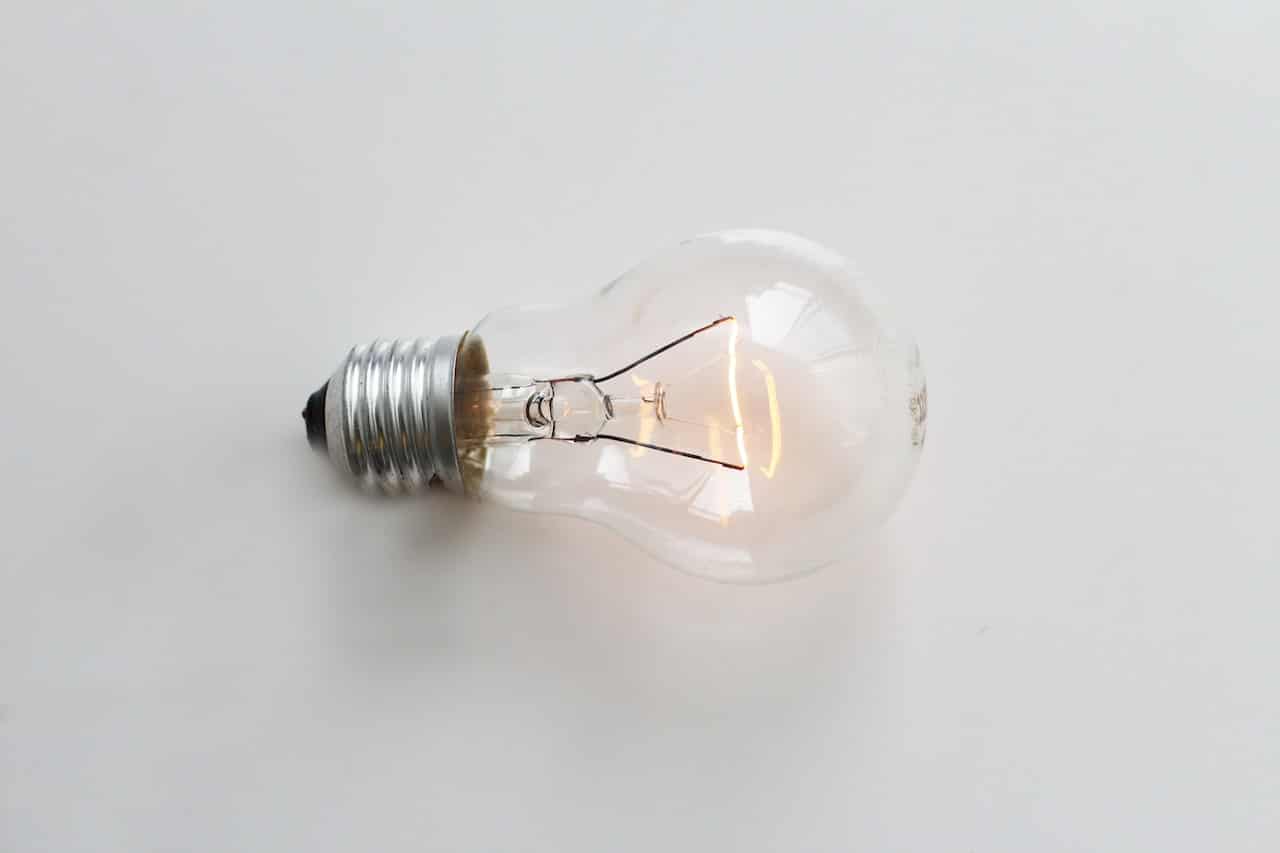While there are several types of loans to help pay bills, like cash advances, payday loans, or even personal loans, it’s always best to seek out non-loan solutions first. If you are having trouble paying your bills, consider using funds from a savings account, asking a friend or family member for a small loan, or even changing your spending habits to free up extra room in your budget.
When you have unpaid bills, life can be incredibly stressful. According to CBS News, 36% of consumers say they have struggled to pay their usual bills in the past week.1 Perhaps you got stuck with a bill that you can’t afford or need money to schedule an expensive home repair. In such instances, getting a loan could help you get enough money to successfully pay your bills and get your life back on track.
Learn how you can get financial assistance when you can’t make ends meet below.
What Loans Can I Get When I Can’t Make Ends Meet?
There are numerous hardship loan options for you to choose from when you need money for medical costs or rental assistance. Unsecured loans do not require you to use an asset as collateral, but good credit is sometimes needed for qualification. Secured loans do not rely as much on credit for qualification, but you will need to secure the loan using collateral.
These are a few popular loan options that most people get for debt payments:
Paying Bills With Car Title Loans
Car title loans are called many different names, such as pink slip loans and auto equity loans. And no matter what they’re called, they can be risky. They are similar to auto pawn loans obtained at a pawnbroker store. Car title loans usually have a quick approval process because eligibility is based on the value of your vehicle and not your current credit score.
You could receive a loan with a car title loan based on a small percentage of the overall resale value. This may be enough money to cover medical bills when health insurance doesn’t cover certain services.
A lender determines the value of a car by considering the make, model, year, and other specifics. If your car is an older model or damaged in any way, you could receive a lot less money than you would if the car was in better condition. The interest rates are usually very high, so this loan option is sometimes deemed predatory.
During the repayment process, you may lose access to reliable transportation. The car title secures the loan, but lenders may still prefer to possess the car at a secure lot during the repayment process. If you rely on your vehicle to get to work, then you may be out of luck with car title loans. Plus. the lender could repossess your car if you fall behind on payments.
Paying Bills With Payday Loans
Paying your bills with a payday loan is a risky move. Payday loans are unsecured short-term, high-cost loans. They charge very high-interest rates and carry extremely short repayment periods.
If you can’t repay the cost of the loan plus interest, then the payday loan rolls over. Rollovers mean the lender charges you additional fees. A rollover gives the borrower an additional two weeks for repayment, but this may still not be enough time to pay back a payday loan. Many people end up in a vicious debt cycle attempting to pay off a payday loan under such stressful terms.
To top it off, the interest rates with payday loans are a financial burden on the borrower. The annual percentage rate (APR) can be as high as 400%. With a high APR rate, you will end up paying significantly more than what you borrowed for medical bills. The Consumer Financial Protection Bureau recommends that individuals who can’t repay should request an extended repayment plan.
Paying Bills With a Cash Advance
Getting a cash advance on a credit card is a convenient option for many people. If you already have a credit card, you can visit an ATM and withdraw what you need. In addition, you don’t have to risk lowering your credit by inquiring about a new loan. You can borrow a small amount against your existing line of credit.
The amount you are approved to borrow with credit cards depends entirely on credit scores. Having good credit could help you obtain higher lines of credit so you could take out more money with a cash advance. The cash advance limit is a percentage of your credit line, usually 20% to 50%. If your credit is low, you may not be able to get enough emergency money with a cash advance.
Taking out a cash advance on a credit card will incur many fees, including a cash advance fee and interest rate fees. The cash advance fee is a transactional fee based on a percentage of the amount you withdraw from the ATM. You may be surprised to learn that the interest rate for a cash advance is higher than the standard purchase rate. A cash advance fee is the amount lenders charge for convenience.
A cash advance loan can quickly shift from a financial convenience into an expensive loan option. But there are also other types of cash advance loans out there as well. So make sure you learn the differences.
Paying Bills With Personal Installment Loans
A personal installment loan works precisely as the name suggests. They are a loan option for personal expenses, and loan payments are made in monthly installments. You can get a personal loan online or in stores.
Personal installment loans are an unsecured loan option that does not require qualification collateral. The eligibility requirements include having good credit, which would typically make you ineligible for emergency funding if your score is low. But keep in mind that personal installment lenders are willing to work with borrowers who lack good credit.
The interest rates with personal installment loans vary but are typically competitive compared to other fast cash options. With a lower credit score, your interest rates may still be higher. Sometimes these lenders provide promotional rates for new borrowers, so just keep an eye on the fine print before signing any loan contract.
Some personal installment lenders may even offer same-day loans online. So make sure you ask questions and research these lenders thoroughly.
What Fees Will You Pay When You Get Loans?
Before you obtain a loan to help pay bills when you can’t make ends meet, it’s essential to consider the fees associated with loans. There are quite a few fees you may end up paying, although some lenders charge more fees than others.
Lenders use fees to earn additional profit from the lending process but also to encourage borrowers to stick to their repayment schedule. Take a look at some standard loan fees you may come across:
| Strategy | Description |
| Decrease Your Credit Utilization | Pay off some debt to reduce your credit utilization ratio, aiming for a ratio under 30%. Lenders often view low utilization as responsible credit usage. |
| Become an Authorized User | If you lack the minimum credit score, become an authorized user on someone else’s credit card. This can boost your credit as the account is reported to credit bureaus. |
| Get a Secured Credit Card | Secure a credit card with a cash deposit to build credit. Monthly payments will reflect on your credit report, improving your payment history and overall credit score. |
| Check Your Credit Report Often | Regularly monitor your credit report to identify and correct errors promptly. Awareness of your credit report helps you understand areas for improvement in your credit score. |
| Practice Patience | Improving credit takes time. Be patient and consistent with responsible credit behavior. Over time, your efforts will be reflected in an improved credit score. |
If you want to get a loan to help pay bills when you can’t make ends meet, ask an agent about the fees you may have to pay.
How To Increase Credit To Get Loans To Make Ends Meet
If you need money now, not a few days from now, rest easy knowing there are plenty of loan options. Loans could help you pay bills when you can’t make ends meet due to financial emergencies disrupting your life.
Increasing your credit is not required to get a loan, but it could help you obtain affordable terms such as lower interest rates. Having a FICO score higher than 670 is preferred by lenders. You could get the highest score of 850. Only about 1.6% of U.S. citizens have perfect credit history. While it’s true that the higher your score, the better, having perfect credit may be unnecessary.
These are some tips for increasing your FICO score over time:
Make Loan Payments on Time
Ensuring that you do not make any late loan payments can quickly increase your credit score. Your payment history is the most crucial factor in FICO score calculations. Lenders offer better financial terms to individuals that demonstrate financial stability.
Increase Your Credit Mix
If you have a lot of loans, you may have considered debt consolidation. But having different types of loans could actually benefit your credit score. Managing multiple loans shows lenders that you are an organized person. For example, having credit cards, federal student loans, and personal loans could help balance your credit mix.
Limit New Loan Inquiries
Limiting the number of inquiries you make can only benefit your credit score. Every time you apply for a loan, the lender conducts a hard credit check. Credit checks appear on your credit report and lower your FICO score by a few points. If you want a loan to help pay internet bills when you can’t make ends meet, consider if you stand a good chance of getting approved.
Avoid Maxing Out Your Credit Lines
Having a low debt to credit ratio can positively reflect your credit score. Lenders like to see successful financial management, which means using less than 30% of your available credit. Suppose you have a credit line worth $5,000, and you spent $4,000. In that case, lenders consider the high debt to credit ratio a sign of risky financial behavior. Try to limit the amount of credit card debt you have to increase your credit score over time.
Applying for Loans When You Can’t Make Ends Meet
Financial emergencies can completely disrupt your financial budget and cause overwhelming stress. Your home’s plumbing system may need to be replaced, or your pet may require emergency surgery. The good news is that you have plenty of financial options available to you. You could even get financial support for mortgage payments and utility bills online without leaving home. Many people also use loans to pay student loans they obtained when financial aid did not cover the full cost of higher education.
Applying for a loan could potentially get you emergency cash the same day you inquire about paying mortgage payments. Gone are the days when you had to wait days for an approval decision by a snooty bank clerk. There are plenty of fast cash options available, so think carefully about what you want from a loan. Ask questions about the repayment process and the fees you will be expected to pay. Do not feel pressured by a silver-tongued lender to apply for a loan before you have done thorough research.
Loan options with flexible qualification requirements generally require the use of collateral, so think carefully about putting an asset on the line. While using collateral could help you secure affordable terms, you could end up losing possession of that asset if you experience financial issues during the repayment process.
FAQs
You may be able to; credit unions often offer personal loans to individuals with various credit scores, including those around 580. They are known for their member-focused approach and may provide more favorable terms with personal loans and otherwise.
A hardship loan is a type of personal loan designed for individuals facing financial hardship. These loans often have more lenient terms and are tailored to assist borrowers during difficult financial periods.
Yes, some financial institutions offer hardship loans. These are special personal loans that provide relief during financial emergencies, often with modified terms like lower interest rates or deferred payments.
Applying for a personal loan can impact your credit report. Lenders typically perform a hard inquiry which may temporarily lower your credit score. However, responsible management of the loan can improve your credit over time.
Accessing hardship loans without a bank account can be challenging, as most lenders require a checking account account for loan disbursement and monthly payment processing. However, some lenders might offer alternative solutions.
Before applying for hardship loans, consider the interest rates, repayment terms, and any potential impact on your financial situation. Ensure that the loan alleviates your financial hardship without creating additional financial burden.
Having a bank account is generally important when applying for personal loans. It not only facilitates the transfer of funds but also helps lenders in assessing your financial stability and transaction history.
Credit unions often provide better terms for hardship loans compared to other lenders. Being member-focused, they may offer lower interest rates and more personalized service during financial hardships.
A Word From CreditNinja About Using Loans to Pay Bills
While some might opt for unsecured personal loans, others might consider a secured personal loan using assets as collateral. Home equity loans are another option. A home equity loan is a kind of funding that allows homeowners to borrow against their property’s value. However, those facing financial hardship should be cautious, as some financial institutions might offer terms that aren’t in the borrower’s best interest. It’s always wise to compare offers from online lenders and ensure you have a stable bank account before making any decisions.
When navigating through financial difficulties, many individuals turn to personal loan lenders for assistance. Credit unions, regulated by the National Credit Union Administration, may also offer a variety of loan options, including hardship loans and payday alternative loans.
Before you apply for a personal loan, hardship loan, home equity loan, or otherwise to help you pay bills, CreditNinja encourages you to consider options such as:
- Using money from a savings account
- Evaluating your spending habits and making changes if needed (for example, eating out less or canceling unused subscription services)
- Asking a trusted friend or family member for a small loan
- Getting a second job temporarily to earn some extra cash
- Organizing your finances and creating a budget to see if that frees up funds from your income
Want more information about paying bills, getting out of debt, and more? Check out the CreditNinja blog dojo for hundreds of free resources!
References:
1. More Americans say they can’t pay their bills. Here are the states where it’s worst | CBS News
2. How Payday Loans Work | Payday Loan Info
3. How Does a Credit Card Cash Advance Work? | FOOL.com
4. Late Fee Definition | Investopedia
5. What Is The Highest Credit Score Possible? | Forbes






